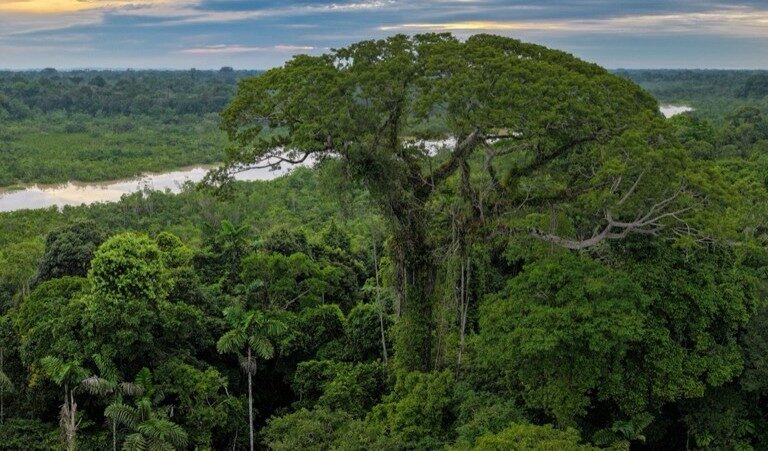Ecuador recently passed a landmark protected areas law aimed at restoring security in the country’s national parks and reserves. The law establishes new government agencies and funding mechanisms, and tries to close legal loopholes that used to leave rainforests vulnerable to development. Reactions to the legislation have been mixed. Some environmental groups call it a turning point for protected areas, while others say it will militarize conservation efforts and ignore ancestral land rights. “The objective is to recover and sustainably utilize these areas, diversify the local economy, create dignified employment, reactivate tourism, and ensure the presence of the state in strategic areas for security and development,” the office of President Daniel Noboa said in a statement when he presented the legislation to the National Assembly in June. Ecuador has 78 protected areas that cover a combined area of more than 26.2 million hectares (64.7 million acres), or nearly a fifth of the country. But the government has recently struggled to provide adequate funding for many of them, and bureaucratic obstacles have made it harder to respond quickly to new threats. The new law, which entered into force on July 14, creates a National Protected Areas Service meant to centralize funding and management decisions, while monitoring compliance with environmental laws and international treaties. A new public trust will help scale up funding within the new service. It can accept donations and loans for conservation, and will manage the revenue from conservation projects and tourism. “[The trust] allows for the channeling of…This article was originally published on Mongabay
Search
Recent Research
Want your Blog Article featured on our website?
Research
Featured News
Explaining Katsina’s Massive Leap to 2nd Position in the 2025 Climate Governance Ranking
In 2024, during the first edition of the Subnational Climate Governance Performance Rating and Ranking,
COP30: Firm to connect institutions with international climate finance opportunities
SISTME, a climate change and biodiversity conservation consulting firm based in Argentina, has offered to
From resistance to planetary governance, Indigenous women redefine global climate action
While world leaders negotiate behind closed doors in the Blue Zone of COP30, Indigenous Women
Sahara Group Foundation launches 16th Sahara Go Recycling Hub to boost environmental sustainability, economic empowerment
Sahara Group Foundation, the corporate social impact arm of Sahara Group, has commissioned its 16th
Climate finance is the lifeblood of climate action – Simon Stiell at COP30
Remarks delivered by UN Climate Change Executive Secretary, Simon Stiell, at the third High-Level Ministerial
UNDP, REA, GEF commission Plateau solar mini-grid to power agricultural value chains, empower rural communities
The United Nations Development Programme (UNDP), in partnership with the Rural Electrification Agency (REA) and
COP30: Africa urges world leaders to turn pledges into action
Africa has called on the world leaders to turn their pledges into action regarding the
Thousands join global marches calling on govts at COP30 to deliver climate justice
An estimated 30,000 people marched through the Brazilian city of Belém on Saturday, November 15,


